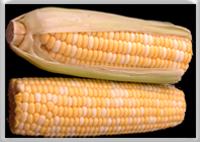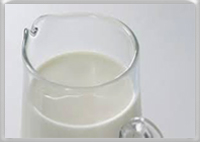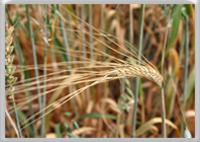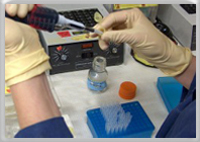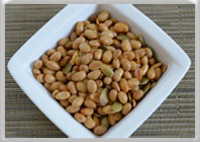Food Allergies, Hypersensitivity or Intolerance?
Food allergies section is my favorite. I will tell you all I know about them. When my son started showing an allergic reaction to something in my milk, I read all the readable information on this topic and consulted every "consultable" source to figure it out.
Now it is time for me to share my knowledge. I hope my story will help yours.
Let’s talk allergies in general. The word “allergy” means “other activity”. Our body has a programmed normal “activity” in response to things we eat, wear, inhale, etc.
Some immune systems, however, react differently or “in other way”. Briefly speaking, it is an unusual reaction to usual things.
The substance that the immune system reacts unusually to is called allergen. When we come in contact with an allergen, our immune system treats it as a foreign body and produces antibodies.
In most cases the antibody produced is Immunoglobulin E (IgE). Immunoglobulin sticks to the linings of stomach, intestines and airways. The next time this allergen gets into the body IgE-affected cells release chemicals that cause allergic symptoms. This is the only true allergy.
True allergies are relatively rare, although they are on the rise. They happen in 5%-7% of babies. Most of them start by the age of two. Allergies are often associated with severe allergic reactions. These may range from skin to breathing to gastrointestinal problems.
Immune system can also produce other antibodies (other than IgE). These are less dangerous. The condition caused by these antibodies is called hypersensitivity, not allergy.
I am getting a little technical here, but I want you to understand the difference.
Most doctors don’t go too deep into distinguishing the two terms and just refer to them as allergy. It is understandable, because people with allergies are most likely suffering from hypersensitivity too. And treatment is the same. However, I will keep two concepts separate.
The third concept that is often mentioned in connection with food allergies and hypersensitivity is intolerance. It refers solely to foods. It is caused by the shortage of enzymes breaking down the food. Lactose intolerance is one of them. Visit intolerance section to read more.
Now that is allergies, hypersensitivity and intolerance in general. Since we talk about breastfeeding here, we will be dealing with allergies, hypersensitivity and intolerance related to food.
Most common allergens are dairy, wheat, gluten, soy, corn, eggs, nuts, fish, and shellfish. As well, foods that you crave and eat the most during pregnancy are reported to cause future allergic reactions in babies.
Many allergies transform from one kind into another. Some allergic reactions are ongoing, some come and go. It makes allergy testing near impossible. Visit Allergy Testing section to read more.
Food dosage also varies. Some people can react to a tiny bit of an allergen, others can eat some safely.
Breastfeeding - to the Rescue!
Breastfeeding is known to prevent some allergies. Most food allergies, hypersensitivities and intolerance are outgrown by the age of one. If you breastfeed your baby exclusively at least till he/she turns one, you decrease the risk of food allergies altogether.
In addition, if the allergies run in the family, you can watch what you eat while nursing, and decrease allergy instances to near zero.
Breast milk has an ideal combination of sugars, easily
digestible proteins and fats. Babies are never allergic to pure breast milk. Allergies are caused by something the mother ate.
Cow’s milk is not recommended for babies under 12 months of age. If you don’t breastfeed until this age, your baby will need to take formula. Infant formula still has intact milk or soy protein and can cause allergic reactions too (hypoallergenic formula is different).
So the bottom line whether you suspect allergies
or not – breastfeed for as long as possible. As the immune system matures, it is less likely to "act out" in response to allergens. By preventing your baby’s contact (through
breast milk) with potential allergens you are protecting him/her from possible
future allergy outbreaks.
When it is time to introduce solids it is best to do potentially allergenic foods last.
If an allergy is suspected in you or your baby, here is a great website packed with recipes for living allergy-free - Food Allergies Recipe Box (opens new window). Check it out!
Other Approaches
You probably heard of a more progressive approach to allergies while breastfeeding. There have been some studies reversing the belief that allergic food avoidance can prevent babies from getting allergies. It is also debated that postponed introduction of allergenic foods saves infants from allergies.
You might have also heard an opinion that the
earlier the baby comes in contact with an allergen, the better chances
his/her body has to adjust.
Well, I must have been more old-fashioned in my approach….or perhaps I was just a desperate mom trying to help my son. Read my story here. Whatever it was, I did the elimination diet, and the blood in my son’s stool went away. Decide for yourself. I choose to err on the side of caution. After all, it is my baby they recommend me to experiment with.
Home › Food Allergies


